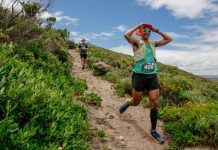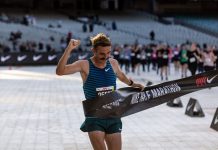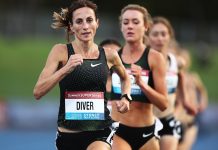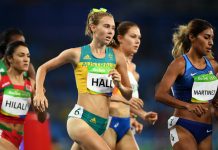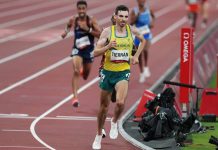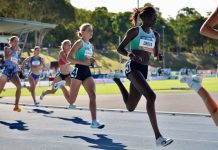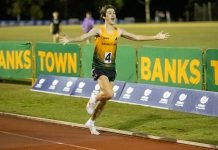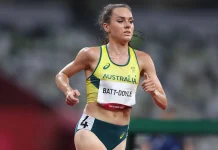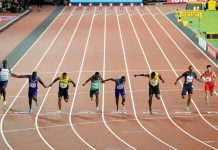By Jaryd Clifford
In 1998, a young runner from New South Wales lay shattered on the Olympic Park track in Melbourne. His name was Martin Dent, and moments earlier he had come to a grinding halt, his panic-stricken face awash with realisation. It was the Australian junior steeplechase final, and while leading the race, he had forgotten to hurdle the all-important water jump. His race was over, and there was nothing he could do. It was his fault, and he knew it. Rising slightly from the track, he began to pummel his fist into the ground, his frustration released in a brief, yet unforgettable tirade. It was this fierce passion that would one day take him to the Olympic Games, and make him one of the toughest runners in Australian history.

On a cold Canberra night, I sit across from Martin Dent in the old games room at the Australian Institute of Sport. His words are humble, his voice a comforting interlude to the silence that has shrouded the institute in the years since his retirement from professional running in 2014. It is nearly six years since his farewell marathon, but as we teeter on the edge of a golden era in Australian marathon running, there are valuable lessons to learn from a man that braved more than a decade at the elite level. It all began more than 20 years ago, even before the fabled meltdown of 1998.
Not many runners – especially male runners – can boast two appearances at world junior level, but Dent is one of them. It highlighted a junior career like none other. “I was a pretty rigid person,” he recalls. “If I had a training plan, I’d just go out and do it. It was what you had to do: go hard and race hard.”
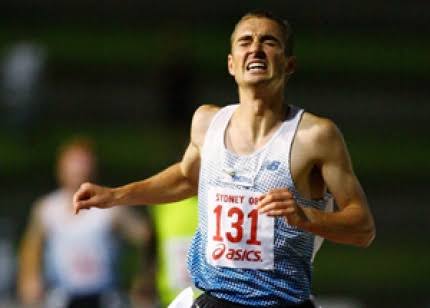
There are two stories from his youth that epitomise this mantra.
Firstly, as an under-16 competing at interclub, Dent ran an 800m personal best of 1:58. Then, 90-minutes later, he broke the NSW state record for 3000m, running 8:38 – the time would stand for nearly a decade, eventually broken by teenage prodigy Ryan Gregson. Such a feat seemed to defy common sense, even sanity.
The second story takes place in post-Apartheid South Africa, where Dent was thrust prematurely into the senior team environment. As one of only two juniors on the 1996 world cross-country team, which boasted the likes of Steve Moneghetti, Lee Troop, and Shaun Creighton, there was no other option than to grow up fast. This transformation was accelerated further by incidents including when fellow junior Mark Thompson ran straight into a barbed wire fence on a training run in the days preceding the race, an accident that required Dent to “check if there was any blood spurting out.”. It was these experiences that ignited the fearlessness that would define his career.
Aged 18, and determined to emulate the achievements of his 1996 teammates, Dent moved to Canberra to train under the tutelage of esteemed coach, Dick Telford. Although he was determined to run himself into the ground, even he could not always be prepared for the famously brutal Telford training regimen.
“Sometimes you’d turn up to a long run, and Dick would decide that it was going to be pretty hard – almost a race,” Dent says. “You’d argue with him: I don’t want to do this, what about the other boys that haven’t even turned up? But he wasn’t interested in excuses like that. He’d just say: toughen up and get on with it.”
Having missed out on the Sydney Olympic Games in 2000 despite having run a qualifier in the steeplechase, Dent turned his attention to the marathon – his dream distance. In his debut race at the Fukuoka Marathon in 2002, he suffered dramatically, recording a seven-minute positive split to run 2:20:04. Even he acknowledges that his first experience was a painful one: “I was pretty messed up. I just laid on the stretcher for ages.”
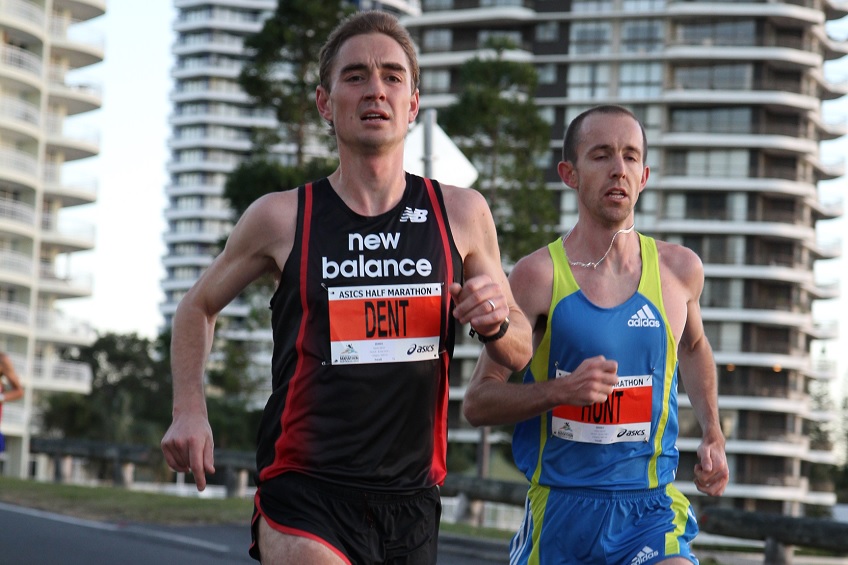
In the modern era, a runner reeling from a failed marathon attempt is likely to seek out help from any number of non-running practices, such as strength and conditioning, physiotherapy, or sports psychology. However, even though these are scientifically supported methods, Dent does not believe they are imperative to success.
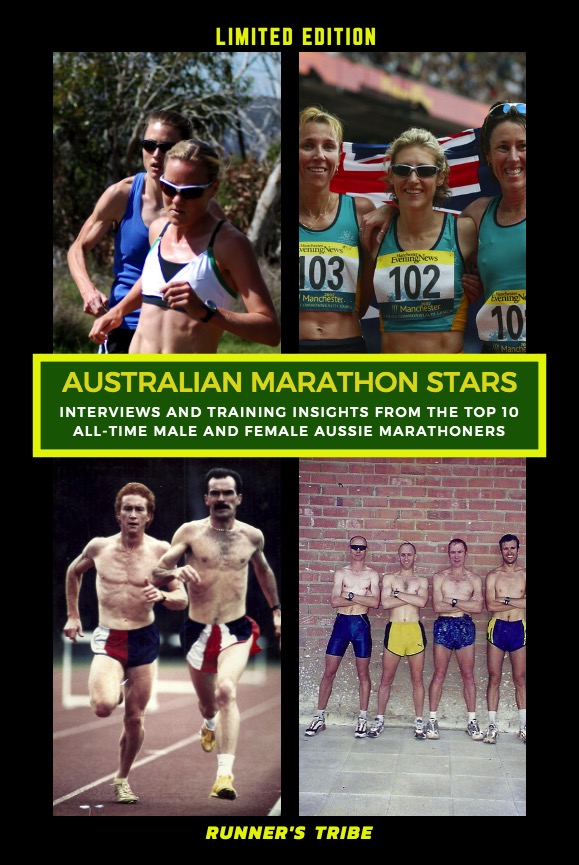
“I know people talk about one-percenters, but I call them the point-one-percenters, and I think they’re worth even less than that. I didn’t really do any of it. I just ran heaps. I did 10,000 crunches an hour when I was running because my abs flex with each step, so I just ran as much as I could,’ he says. “I was too lazy to do anything else. If you’ve got time, then, maybe, it’s good. But you don’t have to do injury prevention if you don’t get injured – that’s one theory.”
Over the ensuing years, Dent notched an array of impressive performances, including a 2:15:12 marathon in Canberra, and a fourth-place in the steeplechase at the Melbourne Commonwealth Games in 2006. Nevertheless, he decided to part ways with Telford, opting instead to go it alone. Within a year he had recruited a small tight knit squad that included current Paralympic Games coach Philo Saunders, and 15-year-old future Olympic 5000m finalist Brett Robinson.
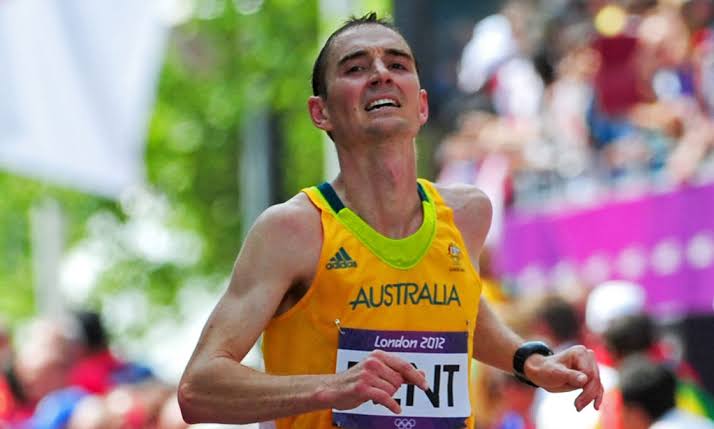
During this period, Dent developed an unwritten rulebook that, for many squads in Canberra, remains intact to this day. Arguably, the most popular rule stated that when there was an allocated start time for training, the squad would only wait for Olympic and world champions, which led to the famous quote: “If Deek was training with us today, we’d wait…but he’s not.”
The other rule was more like a formula. It dictated who was allowed to ‘win’ the final rep in training. For someone to be eligible for such an honour, they had to have led at least half their share. For example, in a 16x400m session with four runners, the natural share is four reps each. Therefore, if a runner had led two reps, they were entitled to race the final rep. When one particular runner, in his first session with the group, broke this coveted rule, Dent ran the culprit off the track, giving him an earful that witnesses would never forget.
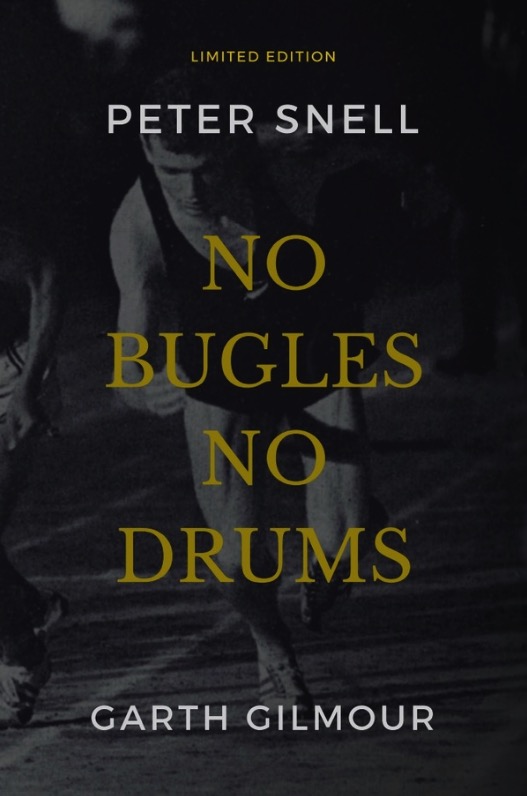
Despite the ferocity, it was Dent’s intense demand for hard work and honesty that inspired those around him. It may also be the reason for the vehement frustration directed at Athletics Australia selectors on his behalf, particularly during the 2008 Olympic cycle.
In 2007, attempting to qualify for the world championships in the steeplechase, Dent recorded a time of 8:24.56 – six one-hundredths of a second under the qualifying time. However, on a trip to Kenya for the world cross-country championships later in the year, he was informed that this performance would not be enough to qualify. “They told me I had to run it twice,” he says. The untimely decree left little opportunity for a counterpunch. He would have to wait one more year.
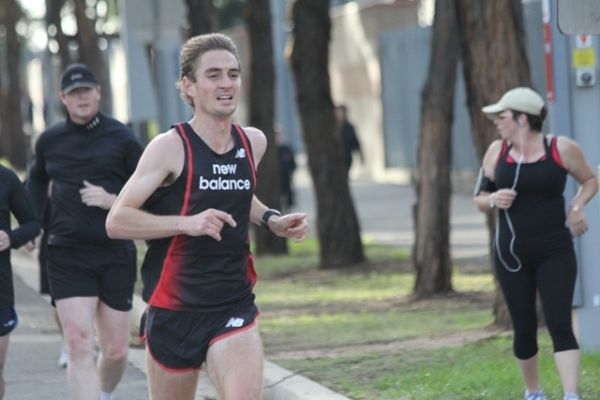
And yet, somehow, 2008 offered only more agony. Firstly, having run an A-qualifier in the steeplechase, Dent realised that, although he had recorded it during the IAAF period, it was not during the Athletics Australia period, due to their failure to align. Ignoring this misfortune, he went on to record a slew of B-qualifying times, before winning the Olympic trials race – something that would secure automatic qualification
today – beating Youcef Abdi, who would eventually place sixth at the Olympic Games later in the year. Still, none of this was enough for Olympic selection. A further four years of gruelling training awaited.
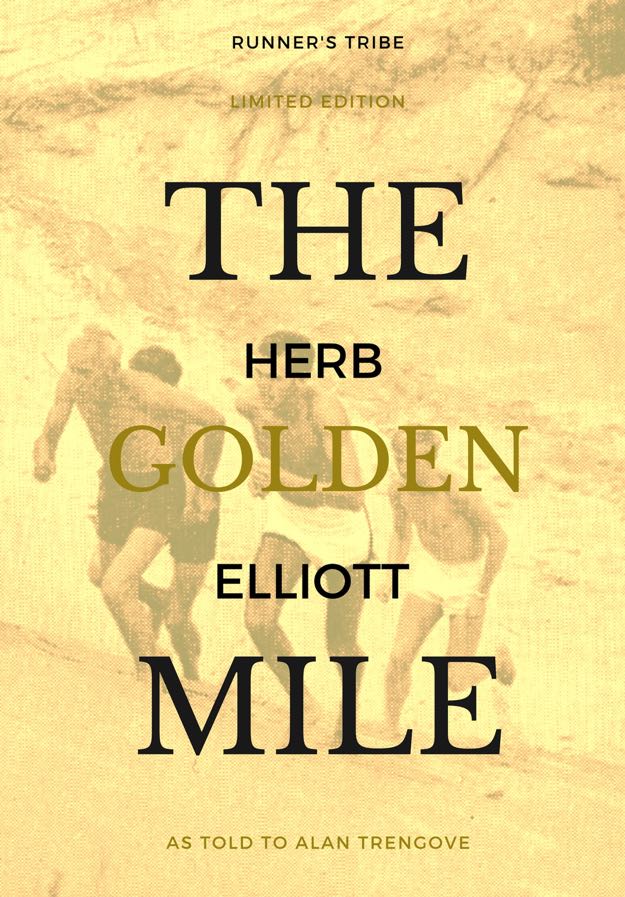
“I was frustrated,” Dent recalls bitterly. “I remember having a conversation with some of the selectors, and they said: You need to run the time again, and you don’t have a finishing kick. They weren’t even interested. I lost a lot of sleep over that.”
This disappointment fuelled the years that followed. A 21 st in the marathon at the 2009 world championships would forever remain Dent’s highest position at a senior global competition. He would also place sixth over the marathon distance at the 2010 Commonwealth Games.
Nevertheless, on a training camp at Falls Creek in 2011, Dent suffered a setback that threatened to derail his final Olympic opportunity. Alongside Mark Tucker, the pair had decided to run – rather than drive – out to the traditional ‘Quarters’ session along the Bogong High Plains Road. Almost immediately, Tucker was felled by a stress fracture in his foot. Conversely, Dent fought on, trained well, and did not feel his punishment until the following day: a sore back, later diagnosed as a severe sacral stress fracture. For those that knew him, there was little surprise that, at least initially, he tried to run through the pain. “I can’t remember any other time where I had to stop on a run. It was
that painful,” he says. “I couldn’t even pick up the kids.”
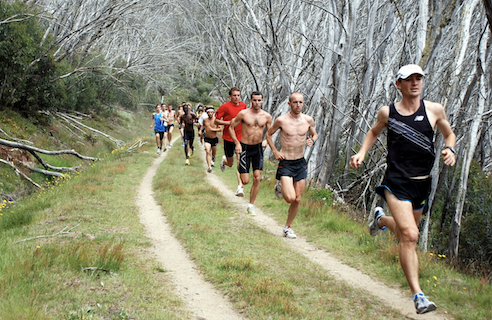
Frustration and selection anxiety settled into their familiar routine upon Dent’s return to racing one year later. Needing a sub-2:12 marathon to qualify for the 2012 Olympic Games, he ran 2:12:23 at the Fukuoka Marathon to ensure his hopes remained in limbo – it would remain the fastest time of his career. However, this time, luck was on his side. Finally, the selectors had found it within themselves to give him a chance. Deep down, he knew that this had been his last gasp at Olympic qualification.
“I was ecstatic,” he says. “I don’t think I could have done what Scotty (Westcott) did and push through to 2016. I’d been doing hard training for 20 years, ever since I was 13. It was taking its toll.”
And, although this culmination in his career might imply contentment, such complacency does not sit well with Dent. In fact, his 28 th place at the 2012 Olympic Games evokes a conflict of emotions. “I was so proud – but I’m also still a bit pissed. I should have got another three places in the final straight.”
Although this intensity burns on, Dent was aware when his time at the top had come to an end. It was during the 2014 Commonwealth Games – halfway through the marathon, to be exact. The drive had ebbed, and his willingness to hurt had evaporated on the slippery streets of Scotland.
“Some guy came up to me with two kilometres to go and said: ‘your mate (Michael Shelley) just won’. Like, oh, that’s awesome, but it also meant that he had already crossed the finish line. It was pretty frustrating,” he recalls. “I don’t think I was prepared to put in the training anymore: twice a day, every day.”
Fast forward to now, and it feels as if something is changing in the marathon community. For those of us born in the years after Deek, Mona, and Clayton, having three male runners – Brett Robinson, Jack Rayner, and Liam Adams – all under 2:12 seems like something to celebrate. However, Dent is less naïve, and perhaps, less sentimental. He knows from personal experience that there is always a desire for faster
times. There is always desperation for more.
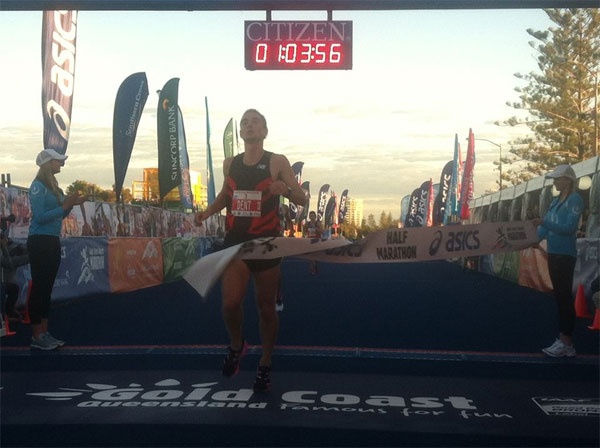
“Australian marathon running is pretty strong right now. It’s going to take 2:11:36 or faster to make the Olympic Games. It hasn’t been this strong for a while,” he says. “I bet those guys can go quicker. In fact, I bet that they might have been a little disappointed, knowing them. And Liam, well he would have done anything to run six-seconds faster.”
As the interview approaches its conclusion, I probe for some final advice. Once more, Martin Dent’s words are wise, applicable to every runner: “Try to enjoy the successes. When you have a win, no matter what, enjoy it.”
And, lastly: “The more you run, the better!”




